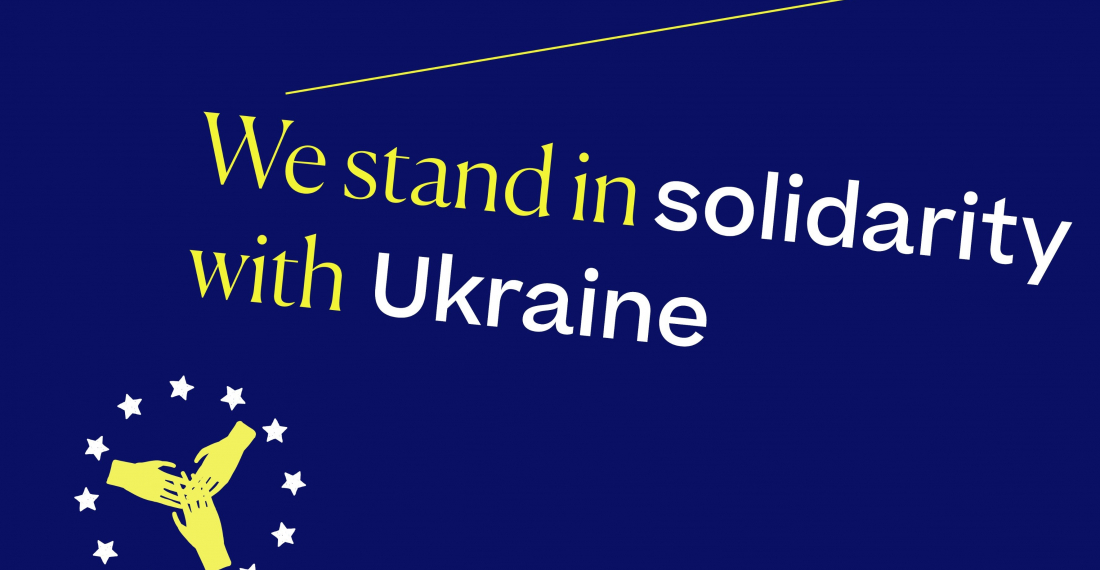Since the start of the Russian invasion, the EU and its member states have given Ukraine billions of euros of budgetary assistance, have welcomed more than 3.7 million refugees, and have extended unprecedented levels of military assistance. Europe has re-discovered the meaning of the word solidarity, even if not all of the solidarity is altruistic but involves also a measure of self-preservation in the face of Putin's Russia naked aggressiveness and expansionist ambitions. Solidarity with Ukraine and Ukrainians is also ultimately in the interest of every European Union country and citizen.
The word “solidarity” has a somewhat dated feel to it. During the cold war it became popular with leftists supporting causes in far flung corners of the third world. Later in Europe it took on a social meaning, related to social cohesion, even though it was rarely used outside the discourse of the Brussels bureaucracy
But in 2022, “solidarity” became fashionable again. This time it is solidarity with Ukraine, as it resists the Russian invasion launched in February. Europe, and in particular the European Union and its member states, have risen to the occasion. They promised help, and they are delivering on their promises.
A few days ago, EU Commission president, Ursula von der Leyen announced the disbursement of one billion euros in budgetary support for Ukraine, part of a 1.59 billion euro package agreed last month. This was the latest financial support package of several announced since February.
However it was Europe’s response to the refugee crisis the Ukraine war has triggered that was most stunning. Russia’s invasion of Ukraine has created the biggest refugee crisis in Europe since WWII. More than six million Ukrainians, mostly women and children, were forced to leave their country. The numbers dwarf those of the last major refugee crisis emanating from the European continent, the Yugoslav wars of the 1990s.
More than 3.7 million refugees from Ukraine have fled to the EU, and have registered for the EU ‘Temporary protection scheme’, or its equivalent in the EU member states, meaning they can legally access employment, housing, education and medical care in their host countries. Poland alone has received 1.3 million refugees and is expected to spend 2.1% of its GDP on their welfare over a twelve month period starting from the launch of the invasion. Germany and the Czech Republic are the other two destinations receiving high numbers of Ukrainians – 900,000 and 400,000 respectively. For the Czech Republic these numbers are particularly high: Ukrainian refugees now constitute 3.7% of the Czech Republic’s population. Few would have thought that “fortress Europe”, with its populist parties whipping up xenophobia, would ever be able to accept this.
But European solidarity with Ukraine has also extended to the diplomatic and military spheres. The EU has joined other G7 countries in imposing harsh sanctions against Russia, even though there is in this a price to pay by EU countries and citizens. The level of military support in terms of equipment, training and expertise has been unprecedented. Short of going to war Europe has pulled out all the stops.
Is this solidarity all altruistic, one may ask. To some extent it is, to some extent it is self-interest.
In the weeks before the Russian invasion European decision makers were stunned as they were presented with evidence that Russia was planning a cold-blooded invasion of its neighbour Ukraine, following a scenario similar to what was experienced in Europe in the 1930s. The determination that Putin’s Russia could not be allowed to succeed in this venture was universal, but the closer you got to Ukraine, one also sensed that several countries felt that it was only Ukraine that now stood between them and an aggressive Russia. There is therefore in Europe’s gestures of solidarity a sense of self-preservation too.
But this does not in any way lessen the significance of Europe’s support for Ukraine. Can this solidarity be sustained for the months, and probably years ahead, as Ukraine struggles to defeat Russia, and hopefully afterwards, victorious, start the difficult process of reconstruction?
The decision to give Ukraine EU candidate status was in this regard significant, and indicates that the EU sees Ukraine as a long term commitment. For sure, as the winter cold starts biting and Putin plays politics with Russian gas supplies, there will be those who will question the value of Europe’s solidarity with Ukraine. It is important they remain marginalised. For this, European leaders, decision makers and opinion shapers, need to communicate constantly to European citizens the righteousness of the decision to help Ukraine to stand up to Russia, and to help the Ukrainian people in their hour of need.
In this quest, the 3.9 million Ukrainians now in the European Union also become beacons for their country. Many of the adults among them are well educated and qualified and are already making a contribution to the economy of their host countries. But they should also serve as a reminder that Europe is not immune to war, and to the brutality of regimes with expansionist ambitions. Solidarity with Ukraine and Ukrainians is also ultimately in the interest of every European Union country and citizen.






